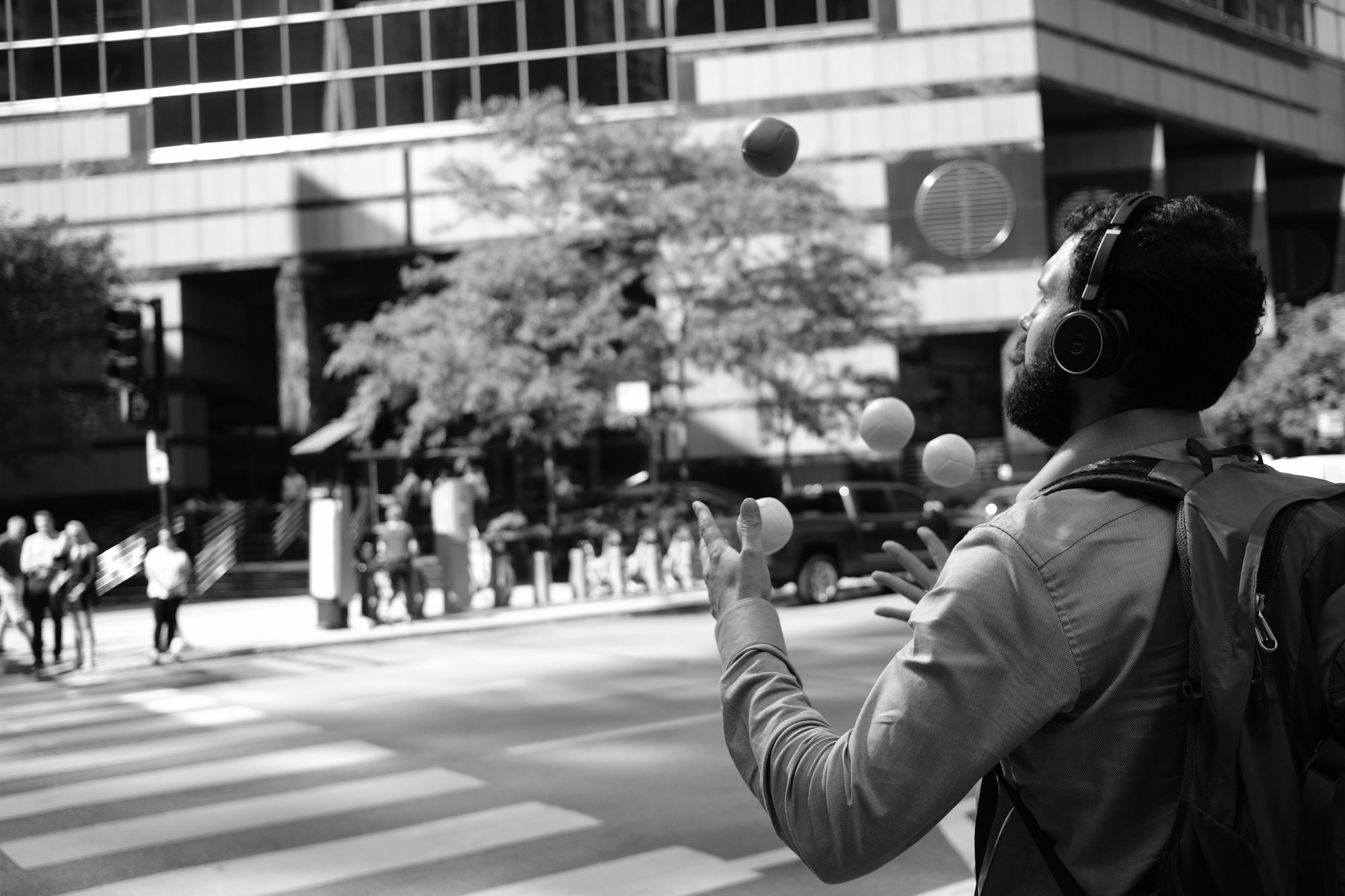Multitasking gets a bad rep. 🤹🏽
But most people spend no time learning how to get better at it!
You can have multiple things on the go.
You can be a jack of all trades.
You can be a competent generalist.
Here's the secret:
Most people try to multitask by throwing three balls in the air and seeing what they can catch before something hits the ground.
Their only concern is things not hitting the ground.
That's an awful way to go about it. No wonder it seems impossible.
Instead, learn to juggle.
Most people think they can't juggle 3 balls at once. I'll teach you how in 3 minutes.
Juggling is counter-intuitive. It's not about catching. It's about THROWING.
Most people fail at multitasking because they focus on trying to catch each ball. Learn to throw instead!
With your projects, this means thinking in advance about HOW you launch any new balls.
Consider the power, the trajectory, and direction BEFORE you start.
Start sustainably if you want to scale sustainably.
If you throw the balls in the air without thinking, you're setting yourself up to fail.
If you've already got some balls up in the air, pause and reset. It's hard to fail forwards.
Take a step back and think about how you can sustainably engage with each project in your life.
Now you've mastered throwing, is it time to learn how to catch? NO.
Catching is reflexive. You can probably do it without thinking.
The next skill is picking the right ball to focus on while they're in motion.
When you're juggling multiple balls, focus on the ball that's at the peak of its trajectory.
For you, this is the project which requires the most exertion.
There are two key concepts you'll need to get this right:
- Manage cognitive bandwidth
- Consider return on time invested
I'll do a separate thread on each of those but you can just sign up for my newsletter to skip the wait and get my best thoughts each week:
Now back to your juggling lesson...
In a nutshell, the next trick to juggling is repositioning yourself in advance to make sure you're in line with the ball at the peak of its arc.
Only focus on one ball at a time. The one in mid-air.
The one that's about to hit your hand will take care of itself.
'Setting up your body' in terms of managing projects means getting better at managing your active task.
This means improving your productivity, your efficiency of output, and streamlining this one project to be as effective as possible.
It also means taking care of your body.
You wouldn't take a high-speed train on a rusty track. So don't expect to run projects at high speed if you're not going to grease the system.
Take breaks. Get sufficient sleep. Eat well, exercise, and drink water. Don't break your body.
Focusing on one ball at a time applies equally to managing tasks as to managing your career.
It doesn't mean you can't do multiple things. It just means you need a system.
If you want to become a great generalist, focus on becoming T-shaped.
Find one thing you can be excellent at and a few things you can be pretty good at. That's the long line of the T, and the horizontal line.
Focus on the long line but incrementally strengthen the rest.
If you're trying to become great with managing multiple projects, identify one key point of focus to centre on, and beware of switching costs.
Think about driving back and forth between two points. Breaking isn't instantaneous, Your brain slows down and accelerates like a car.
When you're aware of switching costs, you can plan around them.
Don't go back and forth rapidly. Spend 'focus time' on one intensive task at a time. Save low inertia tasks for downtime and short bursts of effort.
Now, back to your juggling lesson.
It's finally time to catch!
As I mentioned, catching is somewhat instinctive. You'll know this if you've ever rushed to finish a project before a deadline.
If you were procrastinating before, you won't be now!
But the better you prepare, the easier catching becomes.
Final thing - The handoff.
This is something you can do without thinking, but when you add intentionality, it's powerful.
The hand-off is about deciding when to stop. It's the pause that helps you reset. It's how you prepare for being away.
Plan for contingency and to reset.
The handoff lets you manage your tempo.
Most people use weekends as a default break for pace management. But you can be more intentional than that.
Take a moment to reset tasks every morning. Reset your calendar every afternoon. Reconsider your tempo of exertion...
That's all for now. You're now a master juggler.
Apply the above to juggling projects, developing skills, and juggling actual balls.
Have fun!








